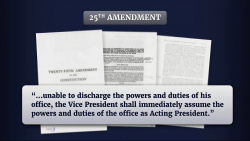The debate is between those who see taxation as the way to resolve the climate crisis and those who believe that carbon taxation will only serve to impose additional burdens on the population.
In his decision in the Supreme Court case of McCulloch v. Maryland, Chief Justice John Marshall famously stated that “the power to tax is the power to destroy.” However, not everyone agrees with the late chief justice. Indeed, some are turning to taxation as a solution to the climate crisis.
This idea is not new. After all, tariffs are a form of tax that are used to increase the price of imported goods so that they cost more than the same domestically produced goods. Similarly, the goal of these proposals is to put a definitive monetary price on carbon output and impose a tax on it for the polluter to pay. This will, in turn, incorporate the climate costs of any form of production into the market price of a product, with the hope of allowing market forces to naturally shift consumers away from polluting products and towards more sustainable ones.
But is manipulating Adam Smith’s “invisible hand” the solution to the climate crisis? A coherent answer to this question is imperative as the world continues to heat up.
To Read the Pro Side of This Debate, Go Here.
The pro side of the debate states that carbon taxes and carbon credits work by monetizing behavior so that taxpayers and energy ratepayers pay the costs now, when they’re lower, rather than waiting for the future, when the costs of inaction will inevitably be higher. In addition, taxation and carbon credits assign the polluting companies the responsibility of doing something to reduce emissions now, rather than simply kicking the can down the road. Then, the tax revenue generated by the carbon tax or selling carbon credits can be used by the government to ameliorate the effects of climate change or to encourage the development of public transportation, biofuels, and green energy.
For the Con Side of This Debate, Go Here.
The con side of the debate disagrees, stating that using carbon taxes rests on oversimplified assumptions regarding both the nature of the problem and the efficacy of proposed solutions. The cornerstone of the pro argument is the belief that the government has both the political will and the capability to correct market failures. This is not always the case, as government intervention often imposes transactional costs on consumers and additional levels of bureaucracy on top of the myriad layers that already exist. Nor is the formulation of carbon taxation as scientific or as politically neutral as it is claimed to be. As the old saying goes, “When you put two economists in a room and ask them to calculate the social costs of something, you’ll get three different figures.”
Image: Shutterstock/tech_BGT

















